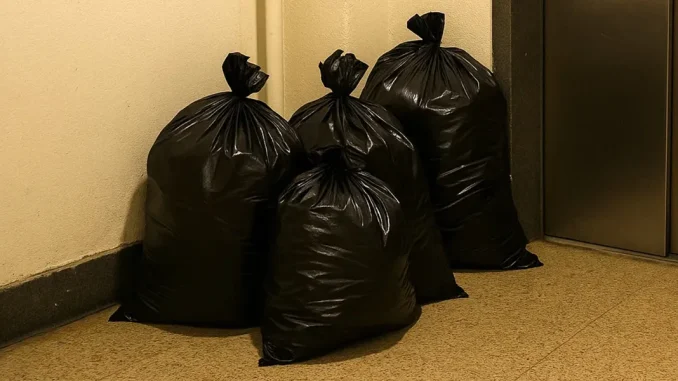
I stepped off the elevator and nearly tripped over a trash bag—right outside my apartment. Annoyed, I bent to move it, but stopped cold. My grandmother’s locket glinted from an open bag, nestled beside my favorite evening gown. My belongings were piled in the hallway like garbage.
Panicked, I rushed to my apartment. My key didn’t work. I pounded on the door—voices inside, Alan’s laugh, a woman’s giggle.
Then the door opened. Not Alan. Miranda, my mother-in-law, sneered at me.
“Oh, it’s you. Take your stuff before someone else does. You don’t live here anymore.”
My chest tightened. “What are you talking about? Where’s Alan?”
“He’s with Lesley,” she said, smirking. Lesley—his “childhood friend”—stood behind her wearing the hoodie I gave him.
Miranda laid it all out: Lesley and Alan had never broken up. I was just the placeholder. And now they’d taken everything—including the apartment I’d inherited from my grandma. Alan reminded me I’d added him to the deed for “tax purposes.” They’d set me up.
Shaken but not broken, I crashed at my friend Casey’s place and called Alyssa—my cousin’s friend, a brilliant lawyer. I gave her Grandma’s will, the deed, Alan’s messages, and a voice recording I’d captured of Miranda gloating. Alyssa’s eyes lit up: “This changes everything.”
Two weeks later, I returned—with a court order and two officers. Alan tried to play dumb. Miranda and Lesley protested. But it was over. They were ordered to leave immediately, with only what they could prove belonged to them.
As they walked past me, I whispered to Miranda: “Karma.” She flinched.
The apartment felt empty—but free. Alan texted. I blocked him. I called my old boss. I got my job back. I repainted, added wind chimes, and reclaimed my mornings.
They thought I was weak. They were wrong.
Sometimes healing isn’t about what you recover—but what you leave behind.
Leave a Reply